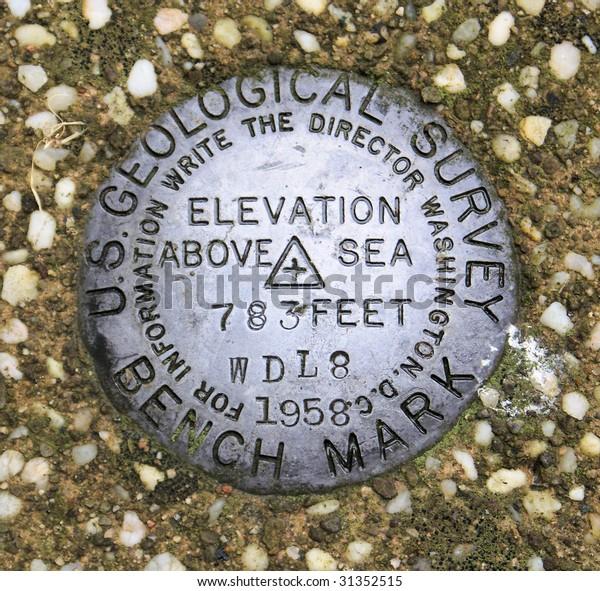Concerns Arise Over USGS Water Science Centers Facing Closure
The recent announcement by the U.S. Geological Survey (USGS) regarding the potential shutdown of several Water Science Centers has sparked alarm among environmentalists, researchers, and local communities. These centers are vital for monitoring and managing the nation’s water resources, offering crucial data and research that guide policy decisions across various governmental levels. As issues related to water scarcity and quality intensify due to climate change and increasing population pressures, these proposed closures could significantly impact national water management strategies. Stakeholders worry that losing these centers will impede essential research efforts, restrict access to critical information, and jeopardize initiatives aimed at protecting the country’s water supplies. This article delves into the possible repercussions of USGS’s decision as well as its broader implications for water science in America.
Budget Cuts Threaten USGS Water Science Centers
The impending budget cuts at the US Geological Survey (USGS) pose a serious threat to the future of its Water Science Centers, raising concerns among scientists, policymakers, and environmental advocates alike. With increasing strain on water resources due to factors such as climate change, urban expansion, and pollution challenges, closing these centers could have severe consequences for effective water resource management nationwide. These facilities are instrumental in assessing trends in water quality and availability while providing essential data that shapes both local and national environmental policies.
Stakeholders express deep concern over how these budget reductions may lead to:
- Diminished Monitoring Capabilities: The ability of these centers to track changes in both supply levels and quality may be severely compromised.
- Heightened Risk of Water Shortages: A lack of comprehensive data could leave communities more susceptible to shortages or contamination events.
- Erosion of Expertise: The potential departure of skilled professionals might diminish institutional knowledge crucial for ongoing research projects.
The effects extend beyond immediate resource management; they threaten foundational scientific understanding necessary for addressing future environmental challenges effectively.
| Affected Area | Possible Consequences |
|---|---|
| Water Quality Assessment | Increased pollutants leading to health hazards |
| Data Availability | Lesser public access to critical statistics |
Effects on Water Quality Assessment & Flood Management Strategies
The anticipated closure of USGS Water Science Centers is likely to have profound effects on both monitoring water quality and managing flood risks throughout the United States. Assessing water quality is essential not only for public health but also for maintaining ecosystem balance. The potential downsizing or elimination of these centers may result in several adverse outcomes:
- Diminished Testing Frequency: Fewer operational centers would reduce regular testing capabilities for contaminants—heightening risks faced by communities dependent on safe drinking sources.
- Pervasive Data Gaps: Inconsistent collection practices might create blind spots regarding pollution trends—compromising local as well as national strategies aimed at effective management.
- Lackluster Public Awareness Efforts: A decrease in outreach programs could lead community members away from understanding their local waters’ conditions better.
Additionally, implications concerning flood management cannot be overlooked either; timely hydrological data generated by those very same threatened facilities is crucial during emergencies when floods occur. Potential challenges include:
- Poor Flood Forecasting Abilities: A reduction in personnel translates into diminished capacity needed for producing accurate forecasts—resulting possibly delayed responses during crises.
- Sustained Infrastructure Evaluations: Keenly observing river levels along with watershed conditions becomes increasingly difficult—hampering preparedness efforts against flooding events.
- Civic Vulnerability Amplified: Affected regions already grappling with flooding issues face even greater threats without scientific guidance previously provided through those institutions.
Advocacy Needed For Funding Solutions To Sustain Research Integrity
The proposed closure plans surrounding USGS Water Science Centers have prompted strong reactions from diverse stakeholders who emphasize an urgent need advocating preservation efforts directed towards maintaining vital research capacities within this field.
As cornerstones supporting ecological studies alongside efficient resource allocation practices—their contributions remain indispensable when informing policies impacting community welfare.
It becomes imperative now more than ever that scientists join forces alongside advocates while engaging policymakers actively voicing concerns ensuring integrity remains intact despite looming financial constraints ahead!
A comprehensive approach must be adopted if meaningful progress is desired moving forward:
- Catalyzing Grassroots Movements : Initiatives designed specifically raising awareness about significant roles played by existing institutions should gain traction quickly!
- Nurturing Relationships With Policymakers : b > Engaging directly with decision-makers advocating sustained funding mechanisms prioritizing scientific inquiry must take precedence!
- < b >Exploring Alternative Financial Models :< / b > Investigating partnerships between public entities/private sectors can help alleviate impacts stemming from federal cutbacks! li >
- < b >Exploring Alternative Financial Models :< / b > Investigating partnerships between public entities/private sectors can help alleviate impacts stemming from federal cutbacks! li >
